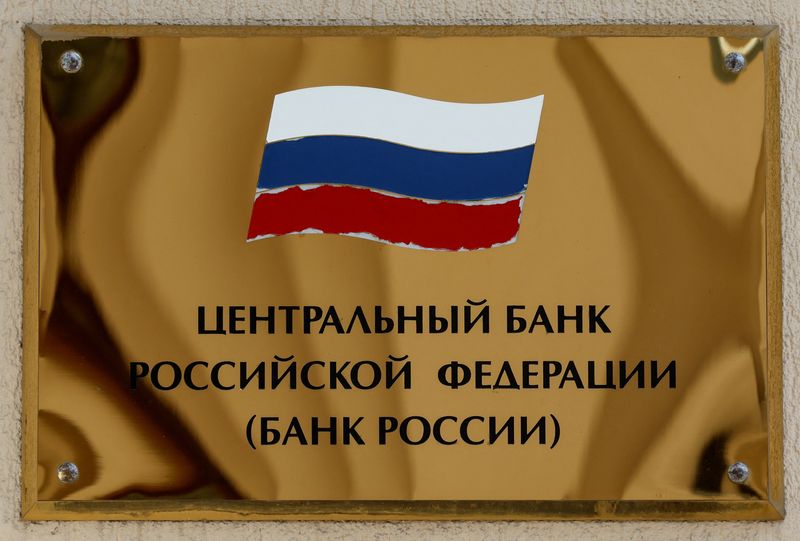Russian central bank keeps rates on hold after Putin’s call for ‘balance’
2024.12.20 07:22
By Elena Fabrichnaya and Gleb Bryanski
MOSCOW (Reuters) – The Russian central bank kept its key interest rate on hold at 21% on Friday, surprising the market, which had expected a 2 percentage point increase, and saying recent tightening had created conditions for inflation to fall towards its target.
The decision came a day after President Vladimir Putin in a nationwide phone-in publicly called for a “balanced” decision from the bank, which is having to manage the inflationary effects of the militarisation of the economy due to the conflict in Ukraine.
Powerful business leaders had complained that soaring interest rates were stifling investment, but 23 of 27 economists in a Reuters poll had still expected a hike to 23%.
“Given the notable increase in interest rates for borrowers and the cooling of credit activity, the achieved tightness of monetary conditions creates the necessary prerequisites for resuming disinflation processes and returning inflation to target,” the central bank said in a statement.
Inflation stands at 9.5%, far above the 4% target. But the central bank said its tight monetary policy had already slowed lending and dampened domestic demand, and that it would assess the need for a hike at its next meeting on Feb. 14.
The central bank is independent by law, and Putin has given governor Elvira Nabiullina a free hand in the past, but analysts said the pressure from business had become too strong to ignore.
“The pressure … worked, and the central bank decided to stop,” said economist Evgeny Kogan. The current rate is still the highest since the early years of Putin’s rule, when Russia was recovering from the economic chaos of the 1990s.
RUSSIAN INFLATION FUELLED BY WAR AND ROUBLE WEAKNESS
Russia’s wartime economy, constrained by Western sanctions and the loss of men of fighting age, is running at the limits of its capacity, with growth expected at 4% in 2024.
Inflation has been fuelled by military spending and a wage spiral as well as bouts of rouble weakness, including a plunge of about 15% against the dollar in November when U.S. sanctions disrupted payments for Russian energy.
The bank said the balance of inflation was still significantly tilted to the upside.
Putin blamed Western sanctions and a bad harvest for high inflation, which is hitting the pockets of ordinary Russians as prices for staple foods such as milk, butter and vegetables have grown in double digits.
During the phone-in, Putin had jokingly called the central bank’s board a “Komsomol cell” after the youth wing of the Soviet Communist Party, which usually took guidance from older comrades.

Powerful business leaders such as oil czar Igor Sechin, CEO of Russia’s biggest oil firm Rosneft, and Sergei Chemezov, head of the Rostec military-industrial conglomerate, both longtime friends of Putin, had criticised the central bank’s policy.
One senior Russian business executive, who did not want to be identified, told Reuters that, with the rate of return below 20% on most projects and a weighted average cost of capital close to 30%, his company was having to cut back investment.








